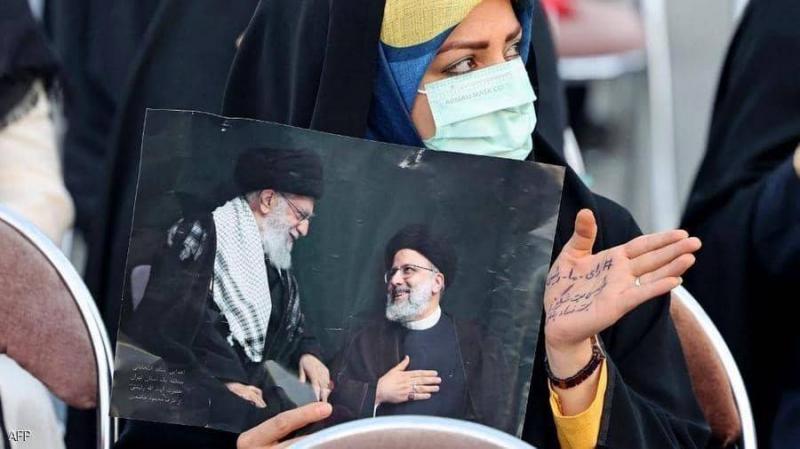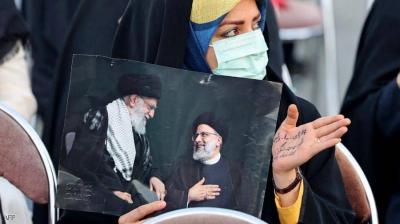Sky News Arabia published a special article regarding the presidential elections in Iran, noting that while the majority of election observers believe that the favored candidate of the Supreme Leader and the Iranian military establishment, Ebrahim Raisi, is likely to win the elections scheduled to take place in a few days, concerns are growing among Iranian social bases about the potential repercussions of this hardline figure’s victory on Iran’s regional and international relations and behaviors, as well as the economic, social, and freedom policies that may be adopted.
The site mentioned that throughout the past week, popular Iranian social media users, especially among women, youth, and civil, cultural, and artistic figures, have raised their pessimistic expectations in this direction, reminding that Iran is expected to witness "a worse phase than the Ahmadinejad years," referring to the eight years of rule (2005-2013) of hardline Iranian President Mahmoud Ahmadinejad, during which he erased the traces of the reform process initiated by his predecessor, Mohammad Khatami (1997-2005).
Politically, the site pointed out that Iranian activists foresee the failure of the ongoing regional and international negotiations being conducted by Iran. The "communicative" relationship between the Supreme Leader and the current President, Hassan Rouhani, over the past two years has allowed the latter to persuade the leader to adopt some flexibility regarding these issues, as Rouhani was one of the country's officials most aware of the terrible effects of sanctions on Iran, which will not be the case during the expected tenure of this candidate.
Iranian political researcher Rajabollah Farahani explained in a conversation with Sky News Arabia the implications of this anticipated shift over the past two weeks: "Despite the existence of Iranian negotiations on regional and international fronts, which should supposedly drive towards some easing, the opposite is happening. Provocative targeting actions by Iran-aligned militias have increased, whether in Yemen or Iraq, and military decision-making centers insisted on sending the vessels 'Makran' and 'Sahand' to the Atlantic Ocean, with no necessity or benefit other than showing off, indicating that Iranian executive institutions are preparing for a phase of a hardline president without precise calculations."
Activists reminded about the "political record" of the nearly victorious candidate, who was president of the highest judicial institution in the country and accused of issuing "unjust" judicial rulings for political, rather than criminal reasons. Candidate Ebrahim Raisi was one of four other judicial figures who oversaw sham trials that led to the execution of nearly 5,000 political prisoners, later dubbed by Iranian human rights committees as the "Death Commission." Furthermore, Raisi was at the highest level of public prosecution in the Iranian capital, Tehran, during the time of the "Green Revolution" in 2009, resulting in repressive judgments against Iranian protesters.
In a similar vein, Iranian social media users confirmed that the upcoming president is expected to target the remaining forms of public, political, and media freedoms in the country during the early months of his presidency, such as imposing restrictions on mixed-gender education in universities and public places, ending unrestricted access to the internet and social media networks, especially new patterns like Clubhouse, capable of gathering hundreds or even thousands of listeners, and, of course, increasing pressure on opposition forces in the country, including the reformist groups that acknowledge the legitimacy of the Supreme Leader and the identity of the ruling regime.




